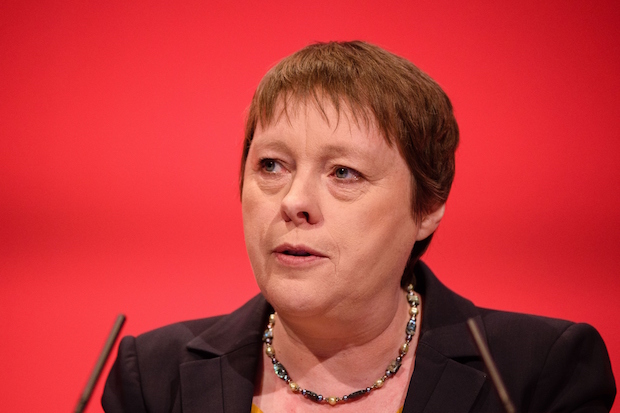24 hours after Scottish Labour voted to oppose renewing Trident, the party’s policy is firmly where it was before this weekend’s conference. On the World at One, the shadow defence secretary Maria Eagle thanked the Scottish Labour conference for their thoughts and said their vote won’t be changing Labour’s policy:
‘I welcome the input of Scottish Labour and its conference into our internal debate, they’re one of many important voices that there are across the Labour movement about this issue.
‘But let’s very clear about what this does and does not mean. This does not change our policy. Defence isn’t a devolved matter, so Labour party policy has to be set at a national party level, at a UK level.’
In response to Diane Abbott’s comments to Coffee House on how the vote reflects a wider shift in the Labour party’s thinking, Eagle pointed out that the party’s national conference in Brighton backed renewing Trident and the mechanisms for deciding policy should be respected:
‘We have it very clear in our constitution our policy making process and that is the National Policy Forum. That makes policy, that’s the thing into which the review will be reporting. It’s then endorsed at conference — as indeed our current existing policy of renewing the nuclear deterrent was endorsed at this conference.’
This attitude towards Scottish Labour may be one of the reasons why the party lost nearly all of its seats north of the border at the general election. Brushing aside the vote as just one factor, albeit an important one, is how the SNP have painted themselves as the only party in touch with the views of progressive voters in Scotland.
The overall problem for Labour is how messy this appears to ordinary voters. We now have Jeremy Corbyn and Diane Abbott welcoming the Trident vote vs. Maria Eagle and Kezia Dugdale who oppose it. These policy splits look damaging, but Eagle suggested people are expecting it:
‘It’s quite normal I think when a party has lost a general election for it to consider its policy five years before the next election and we’re undertaking that review.’
But there is a difference between an internal debate at the party’s conference and media interviews from spokespeople with opposing views. The public may admire this openness — or it may see it as an example of how Labour is unable to find any consensus on key issues.






Comments